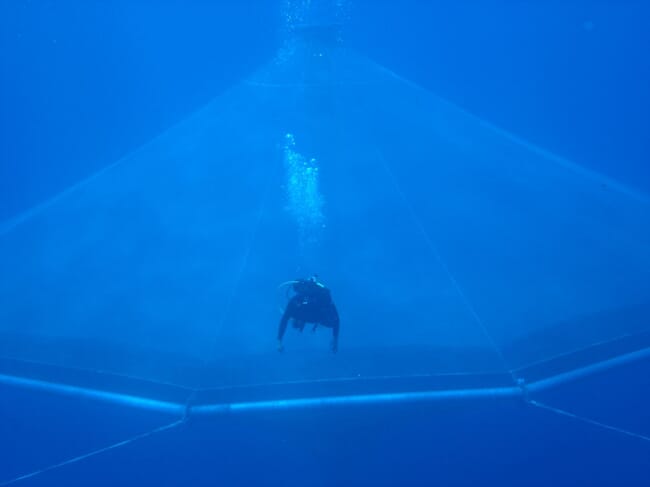Situated 8-10 miles off the Caribbean coast of Panama, Open Blue
produces 1500 tonnes of cobia a year from InnovaSea’s unique SeaStation pens, which can
be fully submerged to depths of up to 100 feet.
With a head office in Panama City and other offices in Miami, Los Angeles, Nova Scotia and throughout Europe, Open Blue is an international company that not only see the value in caring for the environment but also for its workers and the communities within which it operates.

© InnnovaSea
“Achieving these key certifications marks a major milestone for us and for our customers for 2018,” said Chris Perry CEO of Open Blue. “Our innovative approach is to raise and harvest fish miles offshore in their natural ocean habitat in a responsible and sustainable way that honours and protects our sensitive ocean ecosystems and respects the workers and the communities around us.”
“I would like to extend my congratulations to Open Blue on their achievement in becoming the first cobia farm in the world certified against our standard. Welcoming the first cobia producer to our programme marks an important milestone for the ASC,” said Chris Ninnes, ASC’s CEO.
“Open Blue’s certification shows leadership in responsible aquaculture and sets an example for cobia producers around the world. Farms certified to ASC standard contribute to the health of the environment, protect local communities and care for workers. I look forward to welcoming more cobia farms to our programme in the future.”
Background
The ASC’s seriola and cobia standard is the result of more than eight years of development by farmers, scientists, conservationists, industry representatives and other stakeholders. The standard addresses the key environmental and social impact associated with cobia aquaculture, and consists of a set of measurable, performance-based requirements that farms must meet in order to become certified.
Certified cobia farmers minimise their environmental and social impacts in a number of ways. Certified farms are required to measure water parameters such as nitrogen, phosphorus, and oxygen levels and remain within set limits, fish escapes must be minimised, and the use of medicines before a disease is diagnosed is prohibited. There are strict limits for the use of wild fish as ingredient for feed, and farms must ensure full traceability back to a responsibly managed source.


